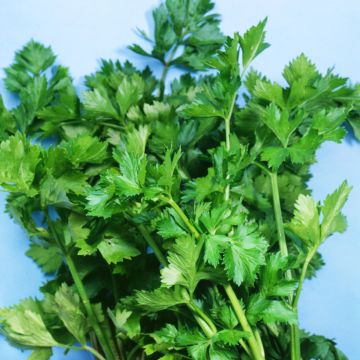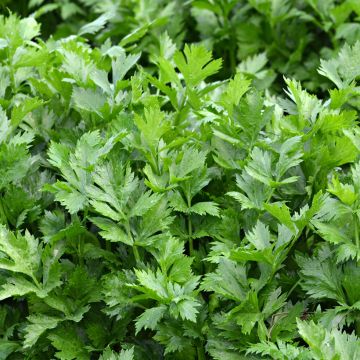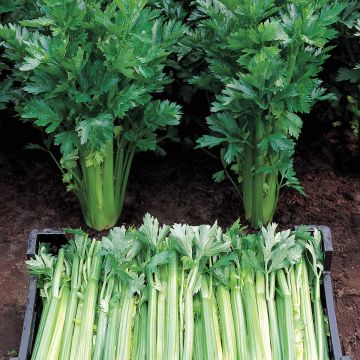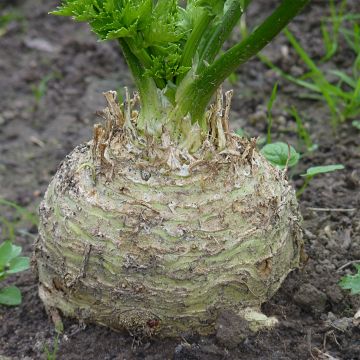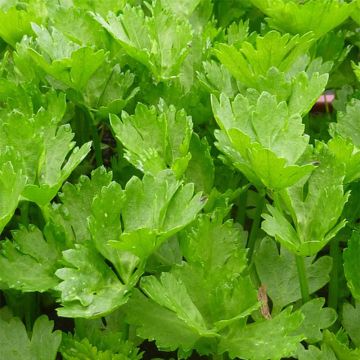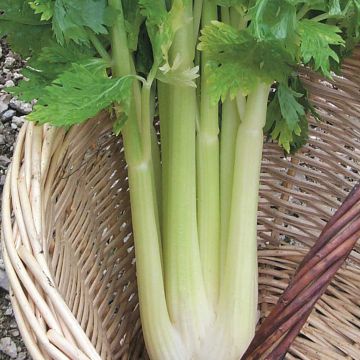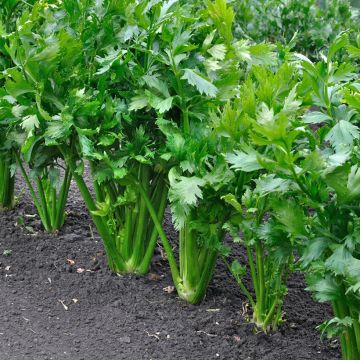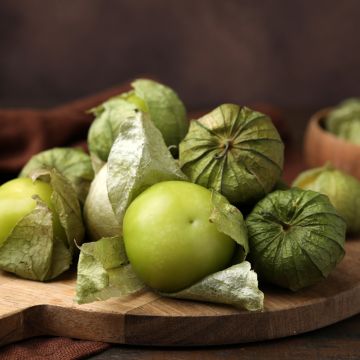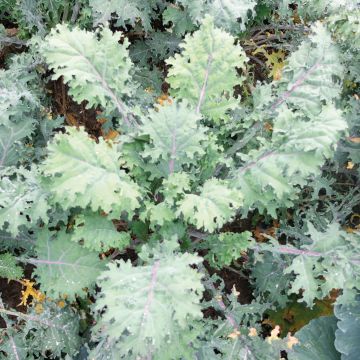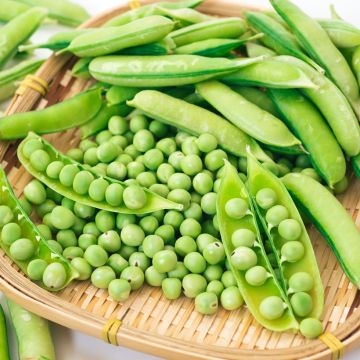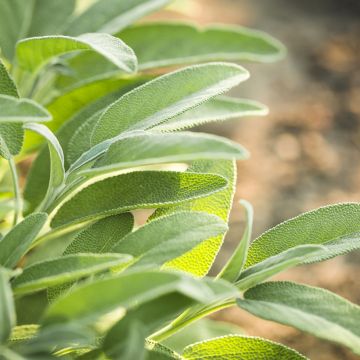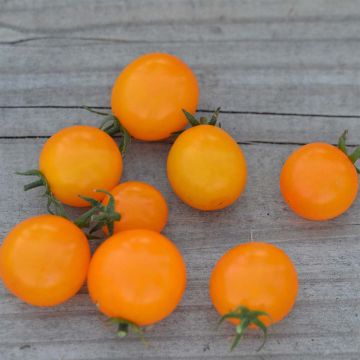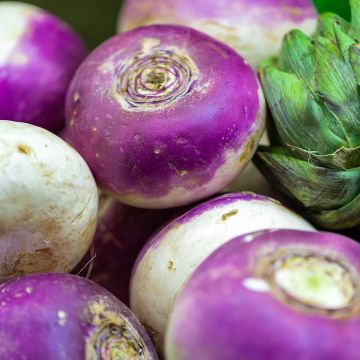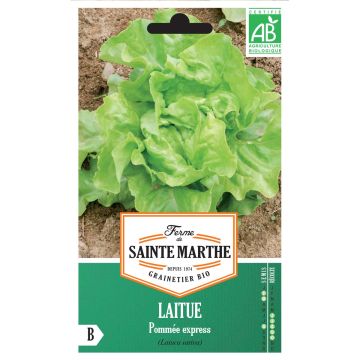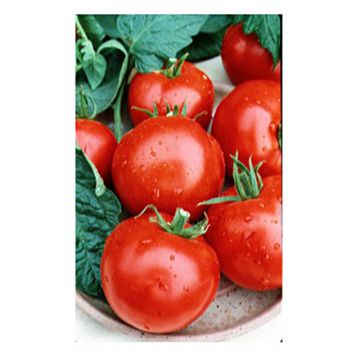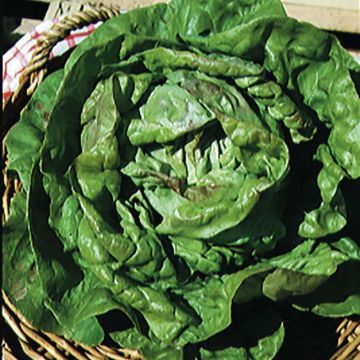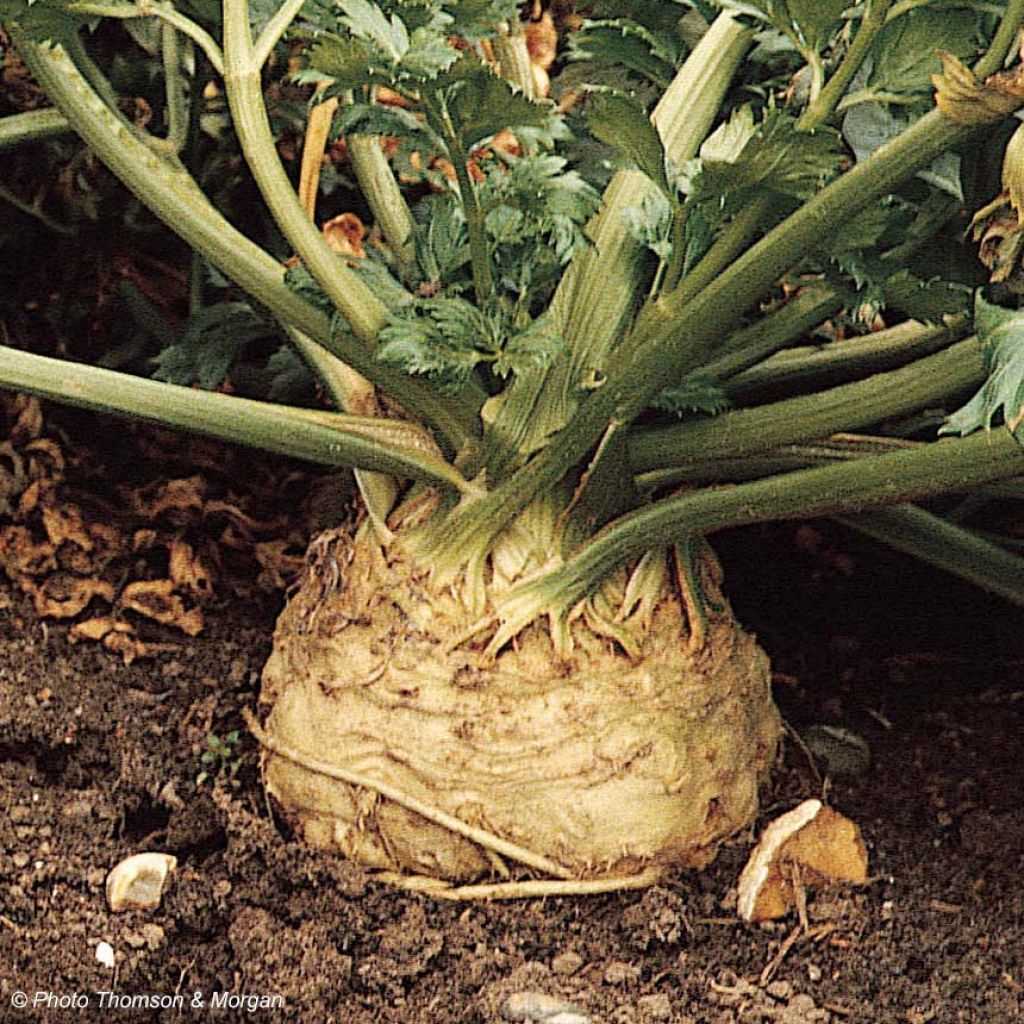

Celeriac Monarch
Celeriac Monarch
Apium graveolens Monarch
Turnip-rooted celery, Celery root
Good germination and normal growth, I recommend.
Frederic, 17/07/2021
This item cannot be shipped to the selected country
Dispatch by letter from €3.90
More information
Schedule delivery date,
and select date in basket
This plant carries a 6 months recovery warranty
More information
We guarantee the quality of our plants for a full growing cycle, and will replace at our expense any plant that fails to recover under normal climatic and planting conditions.
Seed-only orders are dispatched by sealed envelope. The delivery charge for seed-only orders is €3.90.
Description
Celeriac 'Monarch' is a popular late-maturing variety, suitable for long-term storage. The uniform, large, smooth globe-shaped roots are easy-to-clean. The white flesh has excellent texture and flavour. Vigorous, resistant to Septoria and bolting. Sow from February to late May for late summer harvests.
Celery, celeriac and leaf celery are members of the Apiaceae family (Umbelliferae). They are actually different cultivated forms of the same plant, Apium graveolens or wild celery, a hardy perennial native to the Mediterranean region.
Celery is cultivated for its “ribs” or leaf stalks that are commonly eaten fresh in salads or added to soups and stews. Celeriac is grown for its large round bulbous root. Its distinctive, nutty flavour lends itself to a variety of dishes. It can be eaten raw (grated, in remoulade...) or cooked (pureed, gratin or sautéed). Leaf celery is often used like parsley to flavour soups. All three forms are rich in vitamins and minerals and low in calories.
To grow either of the three varieties outdoors, choose a sunny or semi-shaded spot. Celeriac and celery can grow up to 50-70 cm in height. Leaf celery is smaller and can be grown in pots. Best results will be achieved in rich, light, moist soil. Prepare the seedbed in the autumn by loosening and amending the soil with well decomposed compost. Boost established crops with fertilizer. Sow this cool-weather vegetable under cover in spring for autumn to winter harvests.
Harvesting: to harvest celery and leaf celery, pick the outer stalks as and when required, 5-6 months after sowing. Before the first frosts, plants can be dug up and stored in a cool, dark place for several weeks. Celeriac is harvested in the autumn, before the first frosts. Gently dig up the bulbs, leave them to dry for a day outdoors then trim off the stalks and the rootlets.
Storage: Celery and leaf celery is tastiest eaten fresh. However, it can be dried or frozen for later use. Celeriac will keep for several months when stored in a cool, damp place, away from direct sunlight.
Good to know: Mulching with grass clippings or dead leaves from late May onwards will help keep the soil moist whilst limiting weed growth.
Report an error about the product description
Harvest
Plant habit
Foliage
Botanical data
Apium
graveolens
Monarch
Apiaceae
Turnip-rooted celery, Celery root
Cultivar or hybrid
Biennial
Other Celery seeds
Planting and care
How to sow:
From February to April: start indoors or in a heated greenhouse.
From mid-April to late May: direct sow outdoors, in a sunny spot.
Soil must always be kept moist. Until germination, cover with several layers of wet newspaper to retain soil moisture. Room temperature must be of at least 15°C. Germination usually takes 12 to 15 days.
When the seedlings reach the 3 leaf stage, trim the ends of the main root and rootlets and transplant the seedlings into individual pots. Harden off gradually. In May-June, plant out into their final location, leaving 35 cm in all directions.
Care:
Weed and hoe regularly to avoid diseases such as leaf spot and powdery mildew. Copper fungicides such as Bordeaux mixture are an effective way of protecting your plants from fungal diseases.
Maintaining soil moisture is essential. Water regularly and apply mulch around the base of the plants.
Seedlings
Care
Intended location
-
, onOrder confirmed
Reply from on Promesse de fleurs
Vegetable seeds
Haven't found what you were looking for?
Hardiness is the lowest winter temperature a plant can endure without suffering serious damage or even dying. However, hardiness is affected by location (a sheltered area, such as a patio), protection (winter cover) and soil type (hardiness is improved by well-drained soil).

Photo Sharing Terms & Conditions
In order to encourage gardeners to interact and share their experiences, Promesse de fleurs offers various media enabling content to be uploaded onto its Site - in particular via the ‘Photo sharing’ module.
The User agrees to refrain from:
- Posting any content that is illegal, prejudicial, insulting, racist, inciteful to hatred, revisionist, contrary to public decency, that infringes on privacy or on the privacy rights of third parties, in particular the publicity rights of persons and goods, intellectual property rights, or the right to privacy.
- Submitting content on behalf of a third party;
- Impersonate the identity of a third party and/or publish any personal information about a third party;
In general, the User undertakes to refrain from any unethical behaviour.
All Content (in particular text, comments, files, images, photos, videos, creative works, etc.), which may be subject to property or intellectual property rights, image or other private rights, shall remain the property of the User, subject to the limited rights granted by the terms of the licence granted by Promesse de fleurs as stated below. Users are at liberty to publish or not to publish such Content on the Site, notably via the ‘Photo Sharing’ facility, and accept that this Content shall be made public and freely accessible, notably on the Internet.
Users further acknowledge, undertake to have ,and guarantee that they hold all necessary rights and permissions to publish such material on the Site, in particular with regard to the legislation in force pertaining to any privacy, property, intellectual property, image, or contractual rights, or rights of any other nature. By publishing such Content on the Site, Users acknowledge accepting full liability as publishers of the Content within the meaning of the law, and grant Promesse de fleurs, free of charge, an inclusive, worldwide licence for the said Content for the entire duration of its publication, including all reproduction, representation, up/downloading, displaying, performing, transmission, and storage rights.
Users also grant permission for their name to be linked to the Content and accept that this link may not always be made available.
By engaging in posting material, Users consent to their Content becoming automatically accessible on the Internet, in particular on other sites and/or blogs and/or web pages of the Promesse de fleurs site, including in particular social pages and the Promesse de fleurs catalogue.
Users may secure the removal of entrusted content free of charge by issuing a simple request via our contact form.
The flowering period indicated on our website applies to countries and regions located in USDA zone 8 (France, the United Kingdom, Ireland, the Netherlands, etc.)
It will vary according to where you live:
- In zones 9 to 10 (Italy, Spain, Greece, etc.), flowering will occur about 2 to 4 weeks earlier.
- In zones 6 to 7 (Germany, Poland, Slovenia, and lower mountainous regions), flowering will be delayed by 2 to 3 weeks.
- In zone 5 (Central Europe, Scandinavia), blooming will be delayed by 3 to 5 weeks.
In temperate climates, pruning of spring-flowering shrubs (forsythia, spireas, etc.) should be done just after flowering.
Pruning of summer-flowering shrubs (Indian Lilac, Perovskia, etc.) can be done in winter or spring.
In cold regions as well as with frost-sensitive plants, avoid pruning too early when severe frosts may still occur.
The planting period indicated on our website applies to countries and regions located in USDA zone 8 (France, United Kingdom, Ireland, Netherlands).
It will vary according to where you live:
- In Mediterranean zones (Marseille, Madrid, Milan, etc.), autumn and winter are the best planting periods.
- In continental zones (Strasbourg, Munich, Vienna, etc.), delay planting by 2 to 3 weeks in spring and bring it forward by 2 to 4 weeks in autumn.
- In mountainous regions (the Alps, Pyrenees, Carpathians, etc.), it is best to plant in late spring (May-June) or late summer (August-September).
The harvesting period indicated on our website applies to countries and regions in USDA zone 8 (France, England, Ireland, the Netherlands).
In colder areas (Scandinavia, Poland, Austria...) fruit and vegetable harvests are likely to be delayed by 3-4 weeks.
In warmer areas (Italy, Spain, Greece, etc.), harvesting will probably take place earlier, depending on weather conditions.
The sowing periods indicated on our website apply to countries and regions within USDA Zone 8 (France, UK, Ireland, Netherlands).
In colder areas (Scandinavia, Poland, Austria...), delay any outdoor sowing by 3-4 weeks, or sow under glass.
In warmer climes (Italy, Spain, Greece, etc.), bring outdoor sowing forward by a few weeks.

































